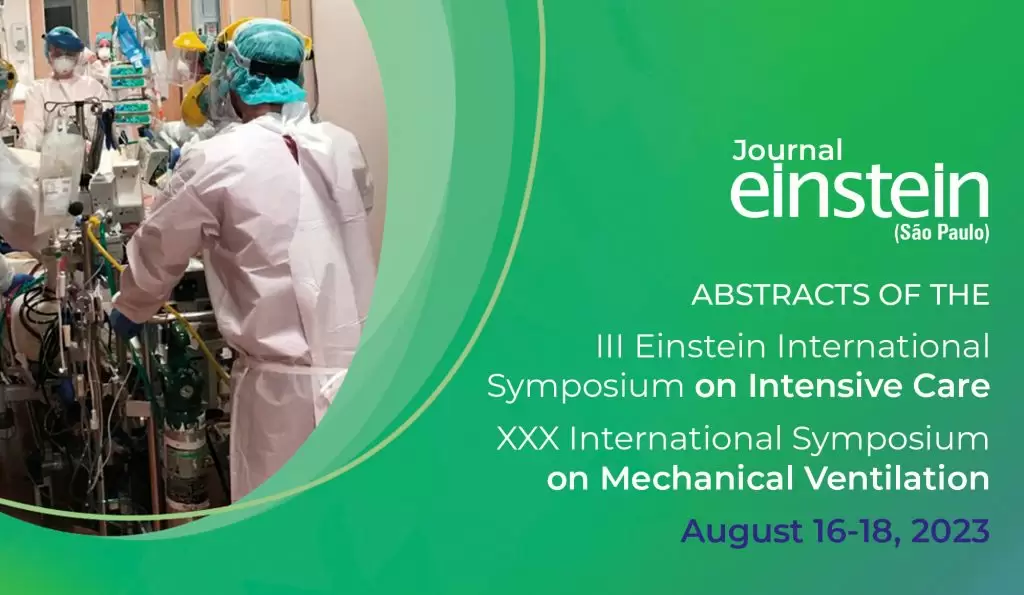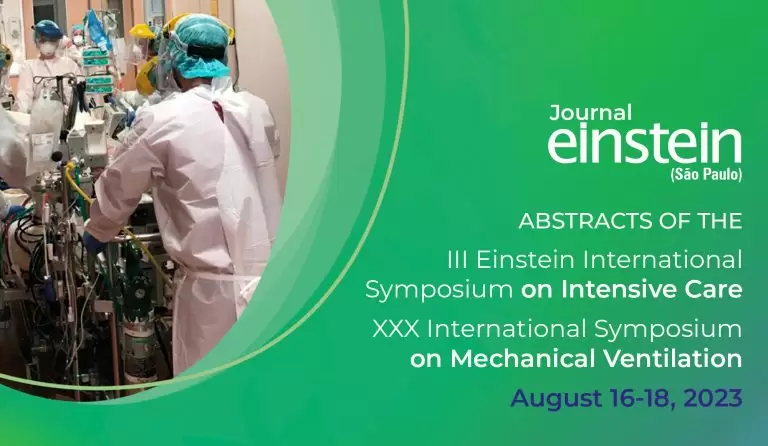einstein (São Paulo). 15/Aug/2023;21(Suppl 1):EISIC_MV0008.
Educational technology on palliative care for nursing undergraduates: previous note
DOI: 10.31744/einstein_journal/2023ABS_EISIC_MV0008
III Einstein International Symposium on Intensive Care and the XXX International Symposium on Mechanical Ventilation. Aug 16-18, 2023.
Category: Palliative care
Introduction:
Palliative Care (PC) promotes quality of life in the face of life-threatening illnesses, providing physical, psychosocial and spiritual assistance to patients and their families. When approached within the training academy, within nursing students, it is still a little explored theme, thus requesting means that facilitate the approach. Educational technological products, in the context of health, are instruments that help the exchange of knowledge in the teaching-learning process during graduation().
Objective:
Build an educational technology on palliative care for nursing students.
Methods:
Methodological research with exploratory qualitative approach, which proposes to build an educational technology on palliative care for undergraduate nursing students of a public university, located in the Amazon, in the North Region, municipality of Belém-PA, Brazil. The study will be carried out in three stages: integrative literature review, diagnostic situation and technology production. Data collection will take place with the application of structured interviews, using the methodological resources of the snowball technique. The IRAMuTeQ software will assist in the organization and analysis of the data obtained. The construction of the technology will succeed the information obtained at the end of the data analysis, which will direct the selection of topics and the development of content.
Results:
The integrative literature review (stage 1) reached a sample of four articles. The synthesis of studies made it possible to demonstrate aspects such as: lack of emotional and technical preparation among nursing students with regard to assisting people in PC; there are communication challenges in the care process and gaps in scientific production on this topic. Step 2 will be carried out with nursing students to identify knowledge about PC. Considering that the assistance in PC requires identification of the needs of the patient, thus executing strategies used to minimize the suffering of patients, it is necessary to learn about social support networks, comfort interventions and communication.() Based on these steps, in step 3 an educational technology will be built. Educational technologies are structures shaped by a set of theoretical-practical actions, using scientific knowledge in the development of technological solutions with the aim of mediating teaching and learning processes.()
Conclusion:
The development of an educational technology for nursing students about people in palliative care will enable reflection and interest on the subject, with a view to obtaining humanized and comprehensive care. Also having as contributions, the development of a product that will contribute to new forms of teaching-learning, stimulating critical and reflective reasoning, helping to develop the necessary skills to implement the palliative care philosophy.
160



